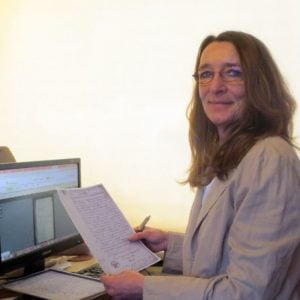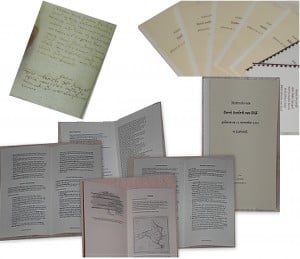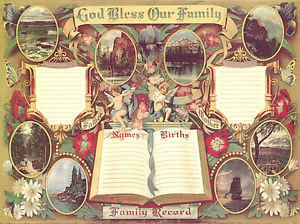Queries about the past: Our ancestors
Who are my ancestors? Where did they live? And what did they do? As our desire to learn more about our past grows, multiple television shows and websites are springing up to help answer these important questions. Genealogy expert Josca Koster is here to tell us about the value of the answers we might receive.
The ego document
By the time she launched her service researching family trees, she had already reconstructed her own back in 1982. ‘I used to regularly walk past the statue of Laurens Janszoon Coster in Haarlem, and sometimes I’d joke and say “Hi grandpa!” But at a certain point I started asking questions about this odd habit of mine. Could it be that this Koster was actually an ancestor of mine? And how could I find out? Over the next four years I worked on my family tree and learned a lot,. For example, I learned that the Koster from Haarlem wasn’t my great-great-grandfather. I was able to trace my family tree back to the mid-18th century, but then the track vanished. The inaccessibility of paper archives forced me to call off my search.’
It took nineteen years before Josca would gain the information she needed to explore her family tree further. ‘After nearly two decade, the internet made it possible for me to resume my work on father’s side. I was able to look into the old judicial archive of the Dutch province of Friesland, and found ancestors going back to the 16th century. Around that time, some great-great-grandfather left an ‘ego document’ that was preserved very well in a dark corner of the archive in Leeuwarden. An ego document is like a diary and was not unusual for the time. I discovered that this ancestor was a farmer who also had a function within the church. He wrote, amongst others, about his work, his family, his surroundings and the price of bread.’
Take a look at our book packages
Traces
Not everyone is lucky to trace their roots back to the 16th century. Usually the traces end sometime in the 17th century, Josca explains. ‘At the time, acts of birth, death and marriage, weren’t registered as systematically as today. And if these events were documented, they were often not well preserved. For example, bombing during the Second World War destroyed most of the old Middelburg archive.’
 When a client first approaches her, Josca starts by researching names. ‘The names of the most distant ancestors still known to the recent family are my starting point. Due to privacy regulations, details of those deceased after 1910 aren’t readily available. From there I start looking for acts of birth and marriage, which enable me to discover more family names and dates and places of birth. A lineage appears, in which forefathers play a great role.’
When a client first approaches her, Josca starts by researching names. ‘The names of the most distant ancestors still known to the recent family are my starting point. Due to privacy regulations, details of those deceased after 1910 aren’t readily available. From there I start looking for acts of birth and marriage, which enable me to discover more family names and dates and places of birth. A lineage appears, in which forefathers play a great role.’
If acts aren’t preserved, Josca finds information from other sources. ‘Newspapers, ads, obituaries, and census records. Any on these may help me make the link to another generation.’
Descended from a 17th-century captain
She often gets requests to locate potential noble bloodlines within the family. ‘But sadly, an inherited title alone will tell whether or not you are descended from nobility.’ Another question is if there have been Jewish family members in the past. ‘That’s more difficult to find, as they often weren’t registered with a Jewish community. That leaves me looking for certain names, but it’s no guarantee. I had a client once for whom it turned out that he had a Jewish grandfather who died a natural death in the Second World War. Two of his sisters died in concentration camps though. Such findings do bring up a lot of emotion in a family.’
Clients also want to learn about their ancestors’ professions. ‘Certain names – Baker, Smith- point us in an obvious direction. Occasionally, I find out that an ancestor had an unbelievably cool profession, like a 17th-century sea captain who sailed his all over the world.’
Perhaps not as spectacular as having a Duke for a great-grandfather, Josca believes it’s just as special when she finds out that a certain family has been living in the same place for centuries. ‘That’s only the case in 5% of the research projects I do. Usually, families tend to move for work.’
Knowledge about ancestors is self-knowledge
According to Josca, interest in finding out about your roots has increased in recent years ‘We all want to know where we come from. And whether we can make connections between our ancestors and ourselves. Could it be that my ancestors had the same profession as me? Or is it possible that there’s a deeply rooted relationship with a city or a province? People want to better understand themselves and their present situations by analysing the past. It puts things into perspective and is almost therapeutic.
Josca still has one ultimate goal: to finish a book with her family tree. Thus ensuring that her family’s history will not be forgotten.
Write your family history with Story Terrace
_______________
By Anne Brugts, Content Manager
About us: Story Terrace helps customers to capture personal stories in beautiful books alongside a professional writer. Our writers have a range of backgrounds and interests, sharing one passion: Portraying individuals through carefully crafted anecdotes and lively stories.



